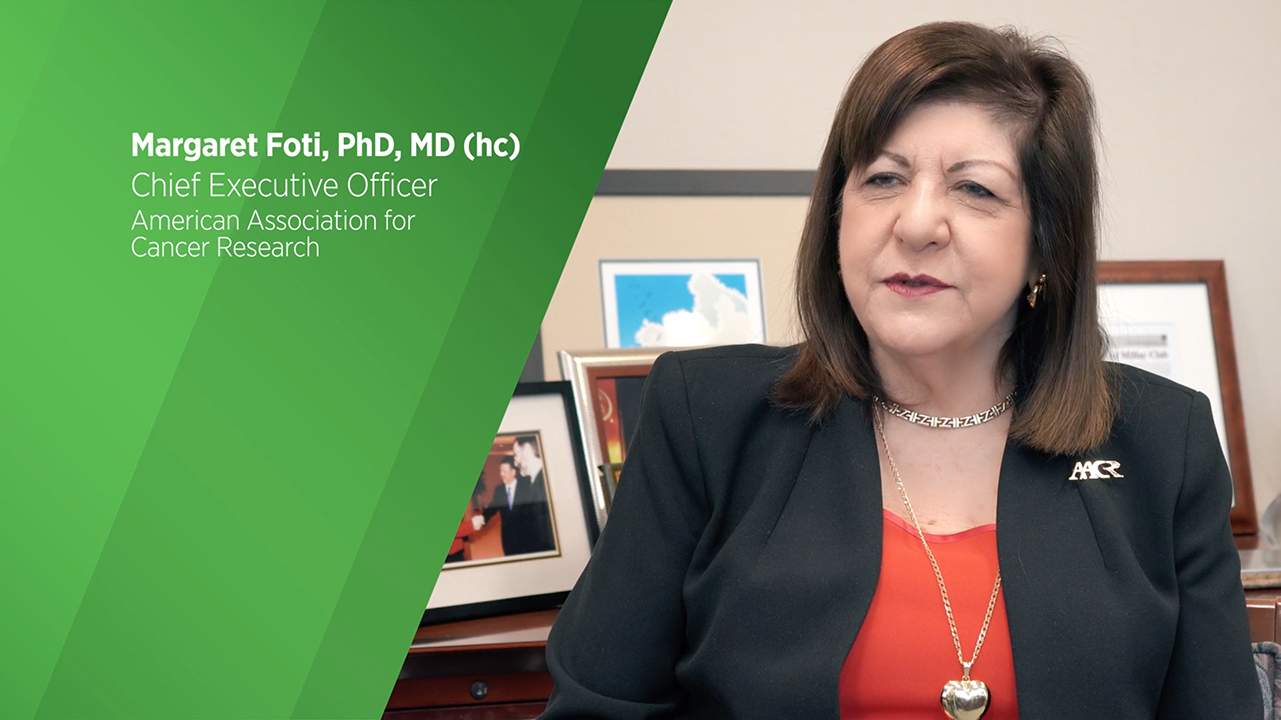

Left to right: Margaret Foti, PhD, MD (hc); Elaine R. Mardis, PhD, FAACR; Antoni Ribas, MD, PhD, FAACR


Margaret Foti, PhD, MD (hc)
AACR Chief Executive Officer

Elaine R. Mardis, PhD, FAACR
AACR President 2019–2020

Antoni Ribas, MD, PhD, FAACR
AACR President 2020–2021